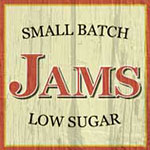The Union
Many people assume that unions are appropriate only where working conditions are so bad that workers need protection from their employer. While this is obviously true in many cases, our approach from the beginning has been a non-adversarial outlook toward unions. One of Jim’s grandfathers was a union man, and the other was a small businessman. He grew up admiring both men, and was naturally inclined to bring their two philosophies together into a partnership rather than in an adversarial relationship.
The existence of a Union contract formalizes our commitment to the human side of the farming equation, much as the process of organic certification formalizes our commitment to a set of farming practices. It sets out an extensive system to which both parties agree, and provides us with an operating framework, which goes beyond the informal goodwill of an employer.
As we know from the history of political movements, a “benevolent” king can be followed by a not-so-benevolent king. From the Magna Carta forward, ordinary people have come to require that their leaders follow certain standards of conduct, which protect their rights. A Union contract serves that function.
Moreover, the Union contract has an important psychological effect on farm workers. They begin to see themselves as professionals, rather than as “cogs” in a system. They begin to feel empowered to have some level of control over their work environment. And by being part of a larger network of workers, they come to have a sense of their important role in society.










